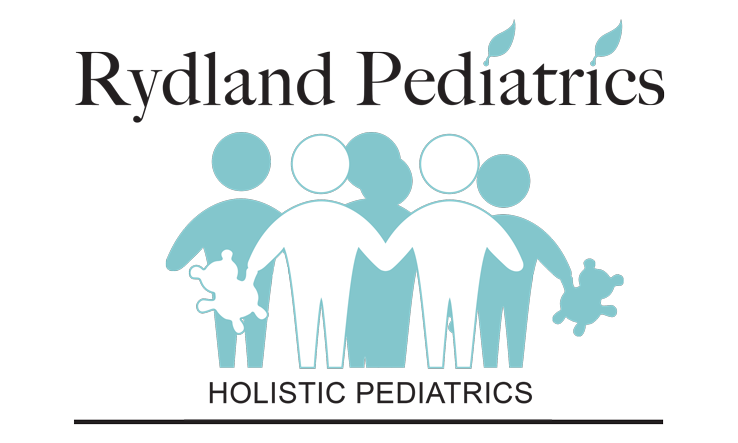Children’s Diet For Basic Health And Restoration
- July 15, 2014
- Health and Wellness
Pediatrician Dr. Eric Rydland, M.D.
NOTE: Foods that have been eliminated or restricted on this diet have been shown to prevent optimal health. A healthy diet begins with a base of whole grains and vegetables, adding other healthy items to supplement them. In order to achieve the best possible health, I urge you to follow this diet as closely as possible. It frequently takes time to develop good eating habits and establish habits of evaluating food labels for ingredients which should be avoided. Gradually work into the following diet. Remember also that there will be occasions when you may not be able to follow these guidelines properly, such as in restaurants, at parties, family gatherings etc.; make these occasions as infrequent as possible and choose the healthiest available items.
Occasionally dietary changes may temporarily cause or worsen a number of symptoms as the body detoxifies (clears out poisons); these are normal for a few days and shouldn’t cause alarm unless severe or persistent (more than ten days). In addition, it should be pointed out that these are suggestions and not mandates. The closer you follow these recommendations the better your child’s health. Finally, the following is not edited for any specific medical treatment or food sensitivity/allergy therapy. Please consult your pediatrician or contact me directly if you have any questions regarding this dietary program.
FOODS TO ENJOY IN PROPER AMOUNTS:
VEGETABLES:
All are allowed and encouraged, prepared raw or steamed preferably. Fresh vegetables are best and frozen next best. (Raw vegetables should be avoided in children under 3 or 4 years old to avoid choking). Avoid canned vegetables. Organically grown are best; otherwise peel the vegetables where possible due to accumulation of pesticides, waxes and other chemicals in the outer parts. Baked or boiled potatoes are very good, preferably including the skin. Sprouts are good additions to salads, stir fry, etc. Olive oil, canola oil, flaxseed oil, other cold pressed oils, and good vinegars (e.g. Balsamic) or other natural salad dressings may be used in moderation.
EGGS:
I do not currently feel it is necessary to limit the number of eggs in children’s diet. I recommend brown yard eggs as being the healthiest, whenever they are available. Soft boiled or poached give the greatest nutritional value. Do not eat raw eggs in any form and wash thoroughly after contact with them due to possible bacterial contamination.
BUTTER:
I recommend unsalted, real butter as being healthier than any margarine. The best butters are made at organic farms, available at many health food stores. Margarines contain “trans” fatty acids, which are suspected as causes of many diseases. Because butter is fat from an animal, it may contain traces of chemicals, and should therefore be consumed in reasonable amounts.
MEATS:
Meat should be consumed in small amounts, no more than 1-2 servings (a serving is the size of the child’s palm) recommended per day, preferably fewer. All lean meats, poultry and fish (from uncontaminated waters) are permitted except pork and shellfish (fish is best, followed by poultry and then beef). Red meat should be limited to about once or twice per week. It is best to remove the skin of poultry and trim excess fat on all meat since most of the hormones, pesticides and antibiotics collect there. Cook all meats extremely well done.
SNACKS:
Whole grains and vegetables with or without meat are the best types of snacks to encourage, especially if there is any suspicion of hypoglycemia (low blood sugar). Some examples are: popcorn, nuts (not under 3-4 years of age due to the possibility of choking) whole grain crackers, bread, waffles, nut butters, tuna or chicken salad on whole grain crackers, carrots, etc.
SEASONINGS:
Natural seasonings are preferable. Substitute sea salt for regular table salt.
GRAINS:
Use whole grains only: brown rice, whole wheat, rye, millet, buckwheat, oats, etc. Most whole grain breads are healthier if found in the health food store. Oatmeal and oatbran make excellent hot cereals. Whole grain is always superior to flour or bread because the oils naturally found in the grains become rancid once the grain is ground up.
WATER:
Avoid regular tap water. A good quality mineral water such as Mountain Valley or Carolina Mountain Water should preferably be consumed. Hard plastic or glass containers are best. Approximately 1/2 to 1 ounce of water per pound body weight is the recommended amount of water to consume daily (add extra for heat or vigorous exercise). Water should be consumed spaced throughout the whole day.
FRUITS:
Most fruits are best taken in moderation if you tend to have a sugar intolerance, hypoglycemic reactions or problems with candida (yeast related illness). Apples, melons, berries and bananas are the best to select from. Fruits should preferably not be eaten alone, but with a protein containing snack or with a meal (suggested maximum of 1-2 servings per day). Small amounts of diluted fruit juice are often tolerated in moderation. Fresh, natural vegetable juices are usually well tolerated. Organic fruits or fruit with peelings removed are the healthiest. Whole fruit or vegetables are always preferred to juice.
THE FOLLOWING FOODS ARE BEST TO AVOID:
IMPORTANT NOTE: Read all labels, even those labeled “healthy” or from a health food store. Avoid all of the following and as many chemicals, preservatives and additives as possible (a good rule of thumb is “Don’t eat it if you can’t pronounce it”).
CAFFEINE: Coffee, colas, chocolate, most carbonated beverages, regular tea and herb teas containing caffeine, caffeine containing medications.
SUGAR: White, brown, turbinado, cane or raw sugar, candy, pastries, ice cream, and other foods that contain sugar. Also, read labels to avoid corn syrup, sucrose, dextrose, lactose, glucose, maltose, etc. Honey, barley malt and amazake (rice syrup) can usually be tolerated in moderation except with candida albicans. Do not use nutrasweet/aspartame or other sugar substitutes. Stevia is an herbal product which can safely be used to sweeten foods.
DAIRY: Milk, cheese, yogurt, ice cream should all be avoided. Butter (preferably organic) is the only dairy product that is permitted in small amounts. Milk and cheeses from goats and sheep can be used as can soy milk and soy products. Dairy ingredients should be avoided such as lactose, casein, sodium caseinate, caseinate, lactalbumen, curds and whey.
WHITE FLOUR: Avoid. (Use whole grains, whole wheat or other whole grain flours, see also above under “grains”).
ALCOHOL: Avoid. Some herbal preparations contain small amounts of alcohol which are well tolerated in our usually prescribed regimens.
CONDIMENTS: Use health food store brands (e.g. Hain’s) whenever possible. Avoid products containing artificial colors, flavors and preservatives. Avoid table salt, MSG (monosodium glutamate), Accent, “lite” salts, Nutrasweet (aspartame), etc.
Dr. Eric N. Rydland, graduated from the University of Miami undergraduate and School of Medicine in 1974 and 1978 respectively and completed his pediatric training at the University of Miami Affiliated Hospitals in 1981. He is pediatric board certified by the American Board of Pediatrics. During his nearly 30 years of clinical experience Dr. Rydland has researched and studied the holistic field and alternative treatments. Integrating these holistic treatments with traditional medical care based upon the wisdom only God can give, has given thousands of patients optimal health benefits. This has been achieved through work with many published authors in the alternative field, his experience, and devine wisdom. In addition to the kidsWellness products our site features other products he uses in his clinical practice. Dr. Rydland is a frequent guest on radio and television, speaker at medical seminars and public conferences, and a published author. He is the Founder and Developer of kidsWellnessTM Incorporated (October 1999)
Upcoming Events
- No Events
WHAT OUR PATIENTS ARE SAYING
Testimonial 2
Sheri, Hollywood
Sheri, Hollywood
Testimonial 1
How I wish I weren't writing this and that by some feat of providence we could have brought you with us to Texas – I don’t know if I’ll ever have the confidence and esteem for another pediatrician that I felt when consulting with you about Frank’s health. Thank you so much for being there when we needed you! Again thank you for everything!
Testimonial 2
Sheri, Hollywood
Sheri, Hollywood
Testimonial 3
Elizabeth, Miami Springs
Elizabeth, Miami Springs
- Total:



